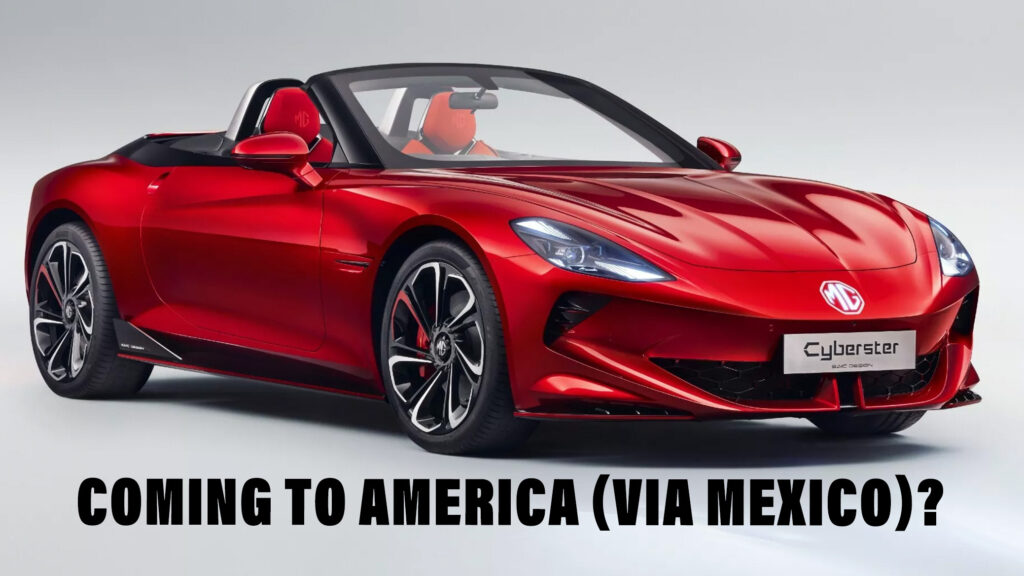Imported Chinese brands are already big in Mexico but building cars there would open up tax-free access to the U.S. and Canada
1 hour ago
 –>
–> 
–>
We keep hearing about how Chinese car companies are poised to take over the world, but while China’s auto industry is already starting to assert its presence in Europe, is it really going to make it in America, where tariffs are already in place to keep its cars uncompetitive?
A new investigation by Motor Trend outlines why American automakers can’t afford to get complacent, because China has a secret weapon, and it’s one located right across the U.S. border: Mexico. While Chinese brands like Chery and BYD might not yet be a familiar sight on American roads, they’re common in Mexico. Nine Chinese brands have established a presence in the country over the past three years, and in 2022 Mexico imported more light vehicles from China than from the U.S. for the first time ever.
But what has this got to do with American car sales? Mexico, Canada and the U.S. formed the USMCA (United States-Mexico-Canada Agreement) trade pact that gives cars made in Mexico a free pass across the border. It’s this deal that allows the likes of BMW, GM, VW and Ford the opportunity to build vehicles south of the border at reduced costs due to the lower wages it pays employees, and sell them at full U.S.-market price in America. And it’s this same deal that could allow Chinese brands such as BYD to set up production sites in Mexico and export cars to the U.S., neatly bypassing the hefty tariffs applied to cars imported to the U.S. from China.
advertisement scroll to continue
The benefits would apply to both complete cars and components such as EV batteries. Under the terms of the Inflation Reduction Act, an EV and its battery must be built in the U.S. to qualify for the full $7,500 amount of tax credits, but thanks to the USMCA, Mexico counts as U.S. soil, as does Canada.
Related: Would You Care If Your Car Was Built In China?
[embedded content]
While American automakers and policymakers should be worried about this threat to their domestic auto industry, Mexico is understandably keen to facilitate China’s expansion plans. Last year it received $397 million of investment, up from $86 million in 2020. Motor Trend’s reporters spoke to an exec from Chery, who confirmed the company has a long term plan to enter the U.S. via Mexico, and it’s not the only one.
A Mexican official responsible for economic development in Nuevo Leon, just across the border from Texas, told MT that he’d been engaged in talks with representatives from several Chinese automakers who want to build a factory in his region with the goal of exporting cars to America. Those companies include SAIC, owner of the MG brand.
So is China’s global takeover a done deal? Not necessarily. David Dollar, a senior fellow of foreign policy at the Brookings Institute, thinks the Chinese brands will be hesitant to jump in too hard to the U.S, market because U.S. lawmakers might change the rules if they see China having too much success using the Mexico loophole.

 <!–
<!– –>
–> 

